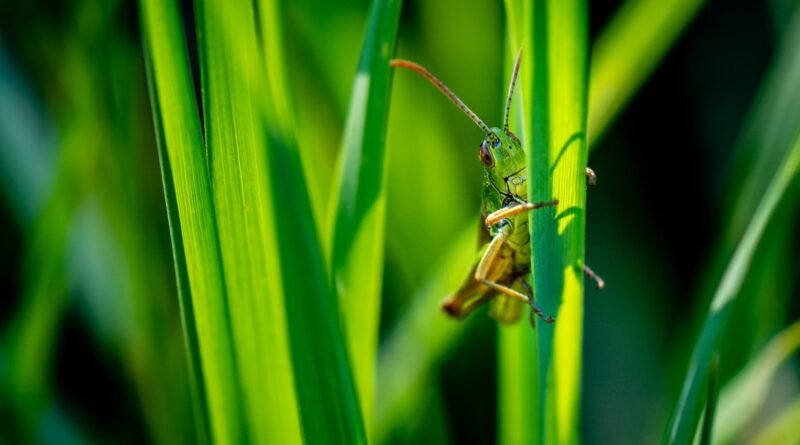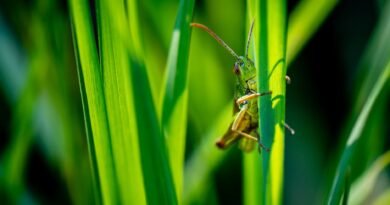GRASSHOPPER
GRASSHOPPER
Part II, Chapter 3
Time for Sab Missal
Jyotirmoy Prodhani
There was not much change in the course of our lives. But then we felt we were great for we realised that we were no longer the same ordinary pupils anymore. We were no less important. After all we had been to jail for the cause of our country. But school remained all the same. Sir was still teaching us the multiplication table. With going for pissing and drinking water getting increasingly difficult with very complicated rules, we were eagerly waiting for the tiffin time. Every day it was half an hour, on Fridays it was one hour. Suraj Gowala said, ‘Any idea why is it half an hour every day except Fridays and why it is not one hour every day?’
Manoj said, ‘Oh don’t you know this? It is because there is no tiffin on the Saturdays, before the tiffin begins the school get over. Therefore, our Sirs want to enjoy the tiffin of Saturday on the Friday itself.’
Manoj had great knowledge about everything.
Tiffin hour was the greatest moment of life. The class captains had the responsibility to beat on the round brass bell randomly to announce the tiffin time. No sooner had the bell rung than most students spilled over on the ground and would soon rush to the edge of the unfenced school compound to buy chanachur. Nobody brought tiffin from home not even water bottles. It was so awkward to carry food from home. We only had to carry books, slates and hard white pencils- books and slates in hands and pencils in pockets. Hardly anybody brought a bag. Very few of them would carry school stuff in bags slung around their backs.
That day, Sankar of class III had announced the tiffin time by beating loudly on the round brass bell plate. The bell used to be rung by one of the students, mostly the class captains. If the captain happened to be absent, a normal student of the class got a chance to beat the bell. To beat on the bell was a great privilege, for that day he would be someone above and beyond others. The bell determined when the school would start, the tiffin would begin, when it would end and finally when the school would get over- that is when there would be chhuti, the biggest moment of the day.
As Sankar rang the bell, we were soon on the ground and gathered around Bura kaka, the old uncle who would by then set up his chanachur stall in front of the school. In fact, as the tiffin class would approach we would peep through the window whether Bura Kaka had arrived. It was a rectangular wooden table top with ridges all around popped up on a portable folding stand. When the stall was set, it would look like that dreaded thing – it looked exactly like the multiplication sign.
My cousin Majani and her friends, Mainu, Nandita and others would make a lot of noise to buy pickles of every variety- sour pickle of jalphai, jujubes and tamarind as well as the most famous of all- chaalta achar, pickle made of elephant apple. They would take a bit of salt on their left palm and dab the stuff to bite, to lick, to slurp. Saraswati Ghosh from our class brought out something that was quite unthinkable – she brought out a big green five rupee note and handed it over to buy several varieties of pickle. Bura Kaka grumbled, ‘How can I give you so much of change?’ Each serving cost 5 paisa, for 10 paisa one would get double the quantity. For one full five rupee note almost the entire shop could be bought. Later Sukatu said, ‘You know, Saraswati is very rich. I heard her father has a buffalo bathan. They drink only buffalo milk and maisha doi, curd made of buffalo milk.’ We raised our eyebrows.
We had to gather around the other stall of Hassan Ali. They both were from Bihar and were experts in making mixtures of grams, fried peanuts, corn and all. In summer there would be a barafwalla selling baraf, popsicles. Earlier each popsicle would cost 5 paisa, now they have doubled the price, 10 paisa. Sometimes they even used to bring some expensive varieties costing a whopping 75 paisa. With mostly 10 paisa in pocket those were beyond our capacity. In winter there would be saunpapri. We used to call the white fluffy, fibrous stuff as old man’s beard. Those were very deceptive, soon after being put inside the mouth they would melt into nothingness.
Next year we would go to the high school. There none of the sellers would go. But the girls would keep getting the benefits for they would mostly go to the Girls’ M.E. school which was in the same compound. In fact, all of us were eager to go to the high school, Jogomohan Vidyapith, the biggest school. Manoj Said, ‘There we will learn many new and difficult subjects, one among them is English.’ But then most of us were excited that once we were in high school we would learn English and would be able to read those comics and other books with lovely pictures. So far we were mostly looking at the pictures only. We were reading the stories of Gopal Bhand, the potbellied jester in Bengali, Amar Chitra Katha, Chandmama in Assamese and Bengali, about detective Dipak Chatterjee by Swapan Kumar, Rupkatha series on the princesses and demons and also Thakumar Jhuli in Bengali, Burhi Air Sadhu in Assamese. On every haatbar, the marketing day, we would buy the books for 70 paisa to Rs. 1.50 apiece. But the most important and the costliest ones were the Phantom comics. In Bengali his name was Aranyadev. It did not sound as great as Phantom though. However, it was difficult to buy them for they were very costly, rupees two each. We could never find the Assamese versions of the Phantom comics, in fact, none of the great Indrajal comics we found in Assamese including Mandrake and Flash Gordon. We decided once we grew up we would write the Assamese versions of the Phantom comics, those were so important.
Prasanta bought a huge quantity of sab missal from Hassan Kaka for a whole 20 paisa. There were so many stuff in the stall, it was very difficult to decide on one particular item, so we would settle for sab missal where a bit of everything would be added, mixed with drops of mustard oil from a small brown bottle with a whole on the cap, sprinkles of two three varieties of salt, squirt of lemon juice from an overused lemon piece, finely chopped onions and chilly as per demand. Hassan kaka would then toss the stuff on a small piece of paper without even a single grain falling off. Prasanta had offered his mixture to all of us and said,
‘How is it? I have given special instructions to Hassan kaka to put the right amount of hot salt and green chilly.’ He added, ‘My dada is in high school. I got to know so many things from him. They do not allow students to enter class if you are not in school uniform. Not like here where you can wear anything.’
Debal said, ‘My uncle’s son and daughters go to English schools in Guwahati. They wear uniform right from class one. They wear leather shoes, coat and neckties. Not like here where we can even come barefoot. I wish we too had the chance to wear neckties!’
Sankar rang the bell to declare that the tiffin was over. Shyam Sundar Sir came to our class after a long delay and asked us to go out of the class, sit under the mango tree and read loudly the multiplication table. Sabita took the lead and we followed her.

Jyotirmoy Prodhani
Professor, Dept of EnglishNEHU, Shillong




